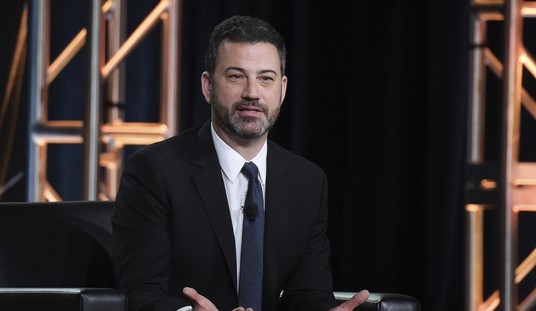We’re all used to watching presidential candidates torture facts in unspeakable ways.
Recently, however, the presumptive Republican nominee Sen. John McCain took a break from the usual distortions of foreign policy, taxes, and the federal budget in favor of a new topic: whether thimerosal, a mercury-based preservative used in vaccines, causes autism.
At a recent campaign “town hall” meeting in Texas, a mother of an autistic boy asked McCain about a recent report that the federal vaccine court had conceded in one case that a vaccine may have contributed to a child’s autistic-like symptoms (more on this below). As reported by Jake Tapper of ABC News:
“We’ve been waiting for years for kind of a responsible answer to this question, and are hoping that you can help us out there,” the woman said.
McCain said, per ABC News’ Bret Hovell, that “It’s indisputable that (autism) is on the rise amongst children, the question is what’s causing it. And we go back and forth and there’s strong evidence that indicates that it’s got to do with a preservative in vaccines.”
McCain said there’s “divided scientific opinion” on the matter, with “many on the other side that are credible scientists that are saying that’s not the cause of it.”
We don’t generally expect presidential candidates to be experts in scientific research, and McCain lived up to expectations with that conversation. In truth, McCain far overstated the extent of the “divided scientific opinion” as to the connection between thimerosal and autism. In short, there is neither a connection nor much of a divide in the scientific opinion about the question.
As the parent of an autistic child, I have been following this story for quite some time, and the verdict is clear. (Click here for some disclosures.)
So here’s the background. As diagnoses of autism have skyrocketed over the last two decades, there has been much discussion of an autism “epidemic” and the related search for an explanation. Several years ago, suspicions focused on vaccines — intially, on the MMR (measles-mumps-rubella) vaccine, but soon thereafter on thimerosal. Suspicions were inflamed when public health officials realized (in what reporter Arthur Allen dubbed a “D’oh! moment”) that under the then-current immunization schedule, children were exposed to aggregate levels of mercury (via the thimerosal preservative) that exceeded certain Environmental Public Agency guidelines. That realization, coupled with some concern over whether a link between thimerosal and autism was in fact biologically plausible, led the U.S. Public Health Service and the American Association of Pediatrics to recommend in 2001 that thimerosal be removed from vaccines as quickly as possible.
For a few years following this recommendation, many autism organizations argued that thimerosal was a cause — or the cause — of the autism “epidemic.” The journalist David Kirby wrote a respectfully received book arguing this hypothesis titled Evidence of Harm, while Robert F. Kennedy Jr. wrote a widely publicized screed in Rolling Stone accusing the medical establishment and the government of covering up the harm caused by thimerosal.
But evidence has accumulated over the last several years showing that there is nothing to the hypothesized link. Various epidemiological studies in other countries have shown no decrease in autism diagnoses after the removal of thimerosal from vaccines. In the U.S., California studies have shown a continued increase in autism diagnoses among California children who were born and received vaccinations after thimerosal was removed from vaccines. Aside from the epidemiological evidence, various other studies have failed to find any link between thimerosal exposure and adverse health consequences. In fact, one major recent study was partially designed by the head of SafeMinds, an organization committed to the thimerosal-autism link — but she disavowed the study when the results demonstrated the opposite.
By contrast, the evidence adduced in favor of the link has failed to stand up to any scrutiny. Most of the studies purporting to find a link stem from the work of Mark Geier, whose work is deemed laughable by several courts and the medical profession alike. And Geier’s reputation is pristine compared to that of Dr. Andrew Wakefield, the doctor behind the initial study purporting to find a link between the MMR vaccine and autism. That study was retracted and Dr. Wakefield has faced charges of financial misconduct in connection with the study. And last and least, RFK Jr.’s story was riddled with factual distortions and the subject of many embarrassing corrections (scroll down for links to five separate rounds).
The anti-vaccine forces have recently been making much hay of a recent concession by the government in the vaccine court division of the Federal Court of Claims (a special court established by the government to hear cases alleging injuries caused by vaccines). This concession (referred to by the woman who questioned Sen. McCain) only applied to a girl with a rare mitochondiral disease (to which there is some evidence that those few kids may be more susceptible to adverse reactions). Moreover, this concession isn’t much of a precedent: it has since been reported that this concession is consistent with other instances in which the government has conceded that children may have experienced adverse reactions to vaccines.
Finally, the current expert consensus is that there simply isn’t an “autism epidemic.” As most comprehensively detailed by Roy Grinker, much of the increase in kids classified as autistic likely is due to a combination of (a) “diagnostic substitution,” where, for example, children who would once have been classified as “mentally retarded” are now diagnosed with an autistic spectrum disorder; (b) a broadening of the autistic spectrum to include Asperger’s syndrome and “PDD-NOS” (“pervasive developmental disorder, not otherwise specified”), which were added to the authoritative Diagnostic and Statistical Manual of Mental Disorders in 1987 and 1994, respectively; and (c) greater efforts by schools and the medical profession to identify children on the spectrum and get them appropriate services, driven by the obligations under the Individuals with Disabilities in Education Act and the money for services available thereunder. Given these changes in definition, it is impossible to make accurate comparisons between past and present rates of autism. So while it is possible that there really has been an increase in autism incidence, there is little doubt that these three factors account for a large percentage of the seemingly massive increase in autistic children.
So why did Sen. McCain choose the losing side in this scientific debate? According to Arthur Allen (author of a recent book on the history and politics of vaccines, and who wrote a story for the New York Times Magazine which helped publicize the thimerosal debate, and has continued to report on the hardening scientific consensus that no link exists), McCain met an Iowa mother of an autistic child named Lin Wessels on the campaign trail. Ms. Wessels is also associated with A-CHAMP, an autism activist group which pushes the thimerosal-autism link. McCain has met with A-CHAMP and sent a letter (together with Sen. Joe Lieberman) to Sen. Edward Kennedy asking Kennedy’s committee to hold hearings on the link between thimerosal and autism. It is also worth noting that A-CHAMP sent questions to various presidential candidates, and their website features responses from Senators Barack Obama, John Edwards, and Joe Biden (see under the January 2, 2008, heading). None of those men’s responses gave much succor to A-CHAMP as to the mercury-autism link. Other wags have speculated that McCain is getting his science advice from infamous radio talk-show host Don Imus, who has been a long-time exponent of the thimerosal-autism link and has had McCain as a frequent guest.
Still, McCain had not distinguished himself as an activist in the area of vaccines and autism (or in vaccine safety issues generally) prior to his statements at the town meeting, in contrast to, most notably, the mercurial Rep. Dan Burton, the most prominent Congressional advocate of a vaccination-autism link.
While he did send a letter to Sen. Kennedy requesting hearings on the mercury-autism link, he has not been active in pushing the matter. In fact, McCain was recently asked a similar question at a second town meeting, and this time carefully avoided any speculation about a link to mercury or vaccines. Quite possibly, his staff set him straight after his initial response to the question. In addition, McCain’s campaign website has nothing at all on the matter of autism, in contrast to plans proposed by Barack Obama and Hillary Clinton (neither of which have anything to do with vaccines). Barring further developments on the campaign trail, there is thus little reason to assume that McCain will put the federal government’s weight behind the discredited theory.
But as the reaction to the recent government vaccine court concession shows, there are lots of people who remain invested in believing that vaccines caused their child’s autism. In light of a child’s diagnosis, parents are often desperate for any form of clarity — both with respect to a cause and for anything that holds out hope of an effective treatment. In addition to offering up a simple and wrong tale of autism’s cause, the mercury-mongers have proffered modes of treatment (most notably “chelation“) about which the only scientific debate is whether they are useless, fantastical ,or actively harmful.
If there is one thing the current state of the science doesn’t provide, it is clarity. The temptation to believe something that promises answers can be overwhelming, especially when your life has been permanently overturned due to a child’s diagnosis.
But the need to believe something doesn’t make a belief true. Politicians such as McCain are very efficient at giving voters what they want. If he wants to be a responsible leader, he should not buy into such flagrant untruths. Unfortunately, as long as there are voters who need to believe those untruths, other politicians will follow suit.
Dr. Manhattan is the pseudonym of a lawyer in New York City who has a child with autism. He blogs at www.blissfulknowledge.com.









Join the conversation as a VIP Member